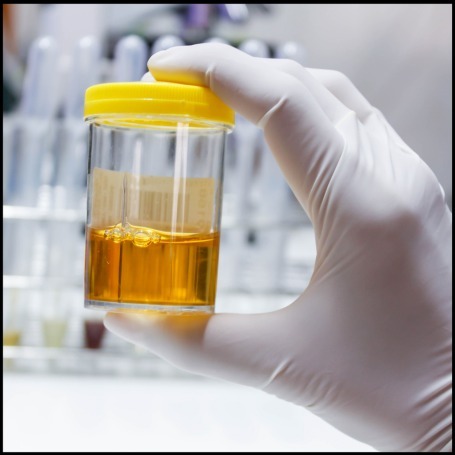
The Urine Routine test is a comprehensive examination that analyzes urine's physical, chemical, and microscopic aspects.

It is a standard test that provides essential insights into overall health, detecting conditions like urinary tract infections (UTIs), kidney disorders, liver disease, and diabetes. This test is simple yet valuable for diagnosing various health issues.
The Urine Routine test is essential for
Detecting Infections and Diseases: It helps identify infections, kidney or liver problems, and other underlying conditions.
Monitoring Health: Regular urine tests can monitor the progression of known health issues, like diabetes or hypertension.
Early Diagnosis: Spotting potential health issues early allows for timely intervention and better outcomes.
A Urine Routine test is recommended for Individuals with frequent urination, abdominal pain, or changes in urine color, which could indicate infections or kidney issues. People with chronic conditions such as diabetes or hypertension that may impact kidney health. Routine health check-ups as part of preventive healthcare.
You should choose Diagnopein in Pune for your Urine Routine test because we are committed to providing high-quality diagnostic care in a clean and hygienic environment. Our center is equipped with advanced technology to ensure accurate and reliable test results, which are crucial for assessing this test. Diagnopein’s experienced staff is dedicated to handling tests with precision and care, offering you both expertise and comfort. We also offer affordable pricing, making essential health diagnostics accessible without compromising quality. For timely, professional, and affordable cardiac testing, Diagnopein is your trusted partner in Pune.
1. Colour
2. Appearance
3. Specific Gravity
4. Protein
5. Glucose
6. Bile Pigments
7. Bile Salt
8. Ketones, Urine
9. Urobilinogen
10. Reaction (pH)
11. Pus Cells
12. Epithelial Cells
13. RBCs
14. Urine Crystal
15. Casts
16. Bacteria
17. Other Finding
This test examines urine for abnormalities in appearance, chemical composition, and microscopic elements to detect infections, kidney disorders, and more.
Generally, fasting is not required, but it’s best to follow any specific instructions from your healthcare provider.
Results are typically available within the same day or within 24 hours, depending on the lab’s processing time.
Consult with your healthcare provider for further guidance and, if needed, additional testing or treatment options.